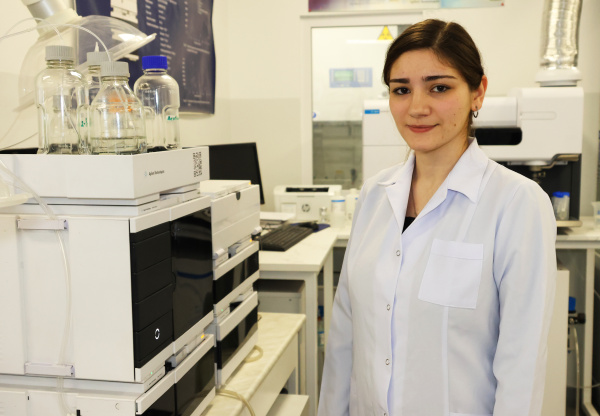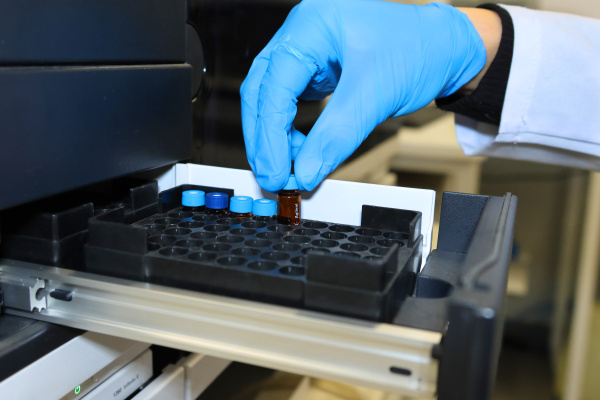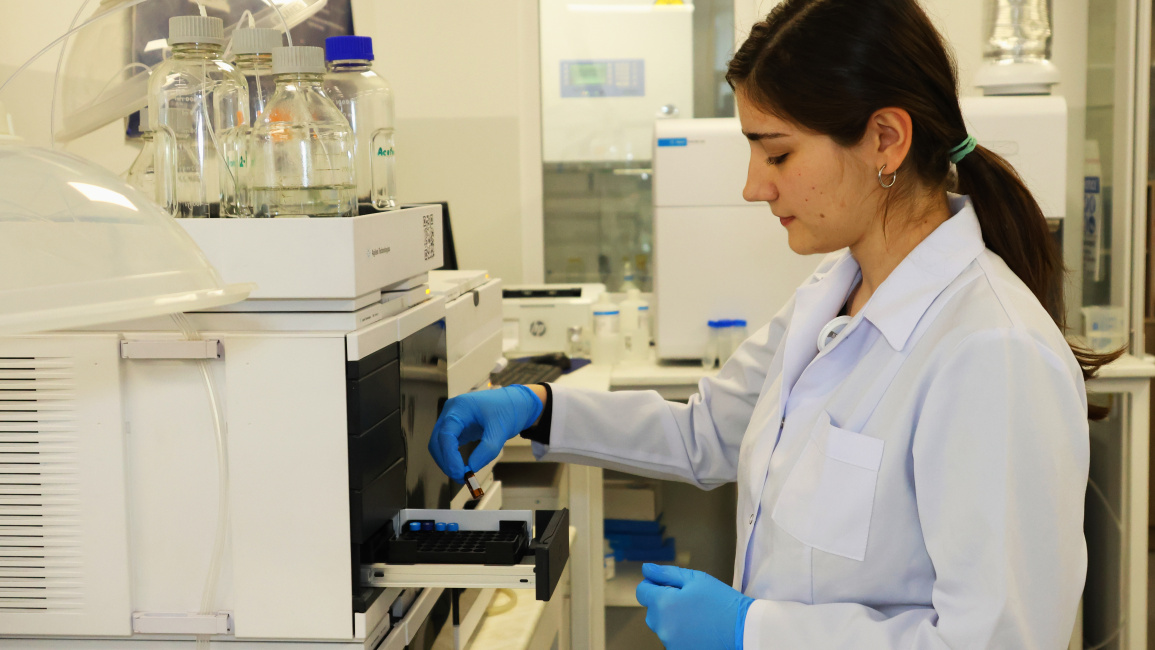One of the priorities of Yerevan State University is to ensure the involvement of young researchers in scientific research activities. For this purpose, the necessary academic environment (laboratories enriched with the latest equipment, research centers and technological resources) is created for university students to carry out relevant research studies, explore and create new ideas.
Tamara Abaghyan, PhD student of the Chair of Biochemistry, Microbiology, and Biotechnology, Faculty of Biology, YSU, is one of the winners of the "Research Assistance Program for Young Applicants and PhD Students - 2023". During the interview with us, she referred to the topic and aims of the study carried out within the framework of the program, as well as the possibilities of applying the research results in practice.

Tamara is telling her story.
When I was admitted to YSU…
In the beginning, I was not very interested in science, but after being admitted to the university, I set myself the goal of making my own contribution to science. Getting acquainted with the research works of university students, seeing their successes, laboratories with modern equipment and, in general, the availability of all the necessary conditions for conducting research, I was inspired and decided to put forward innovative ideas and pursue their implementation. It is also encouraging that most of the people conducting scientific research are young people, which proves that anyone who wants to can become a part of the scientific environment. Now, both the state and the university provide great support to young people engaged in science, providing many opportunities to conduct research and participate in conferences within the framework of various grant programs. Currently, I am conducting research at YSU Microbial Biotechnologies and Biofuel Innovation Center under the supervision of Karen Trchunyan, Doctor of Biological Sciences and Professor.

I am studying…
"The Effect of Organic Acids on the Main Physiological and Biochemical Properties of Microbes" is the topic of my study. Now we consider the effect of short-chain fatty acids - propionic acid, acetic acid and butyric acid - on the bioenergetic, biochemical and physiological parameters of gram-positive and gram-negative bacteria. Acids have bactericidal properties and are used in nutrients and medicine. They are also produced by the bacteria. It means that the microbiota is very abundant in our body, particularly in the intestines. Recently, it has been found that the violation of the balance of these acids in the body can cause various diseases, for instance, related to nervous development. We were interested in whether these acids, if they somehow affect the occurrence of diseases, can also affect the bacterial parameters of the microbiota of the human body because the occurrence of the disease is a violation of some parameters. Currently, we are still conducting our experiments on individual bacteria, but since there is a coexistence of bacteria in the human body, we have made a further plan to research the effect of acids on the coexistence.
As a result of the research...
In the future, when we understand how the violation of acid balance affects bacteria, we can use the obtained result as a preventive measure against the occurrence of neurodegenerative diseases. At present, autism, Alzheimer's, and Parkinson's diseases are very common, the means of prevention of which are still discovered, and there is no definitive treatment. Based on the results of our research, it will be possible to find methods of treatment or prevention of these diseases.
When we understand how to maintain the balance of acids and bacteria in the body, we will be able to provide the body with a condition where it will be possible to prevent or reduce the risk of these diseases and their symptoms.


